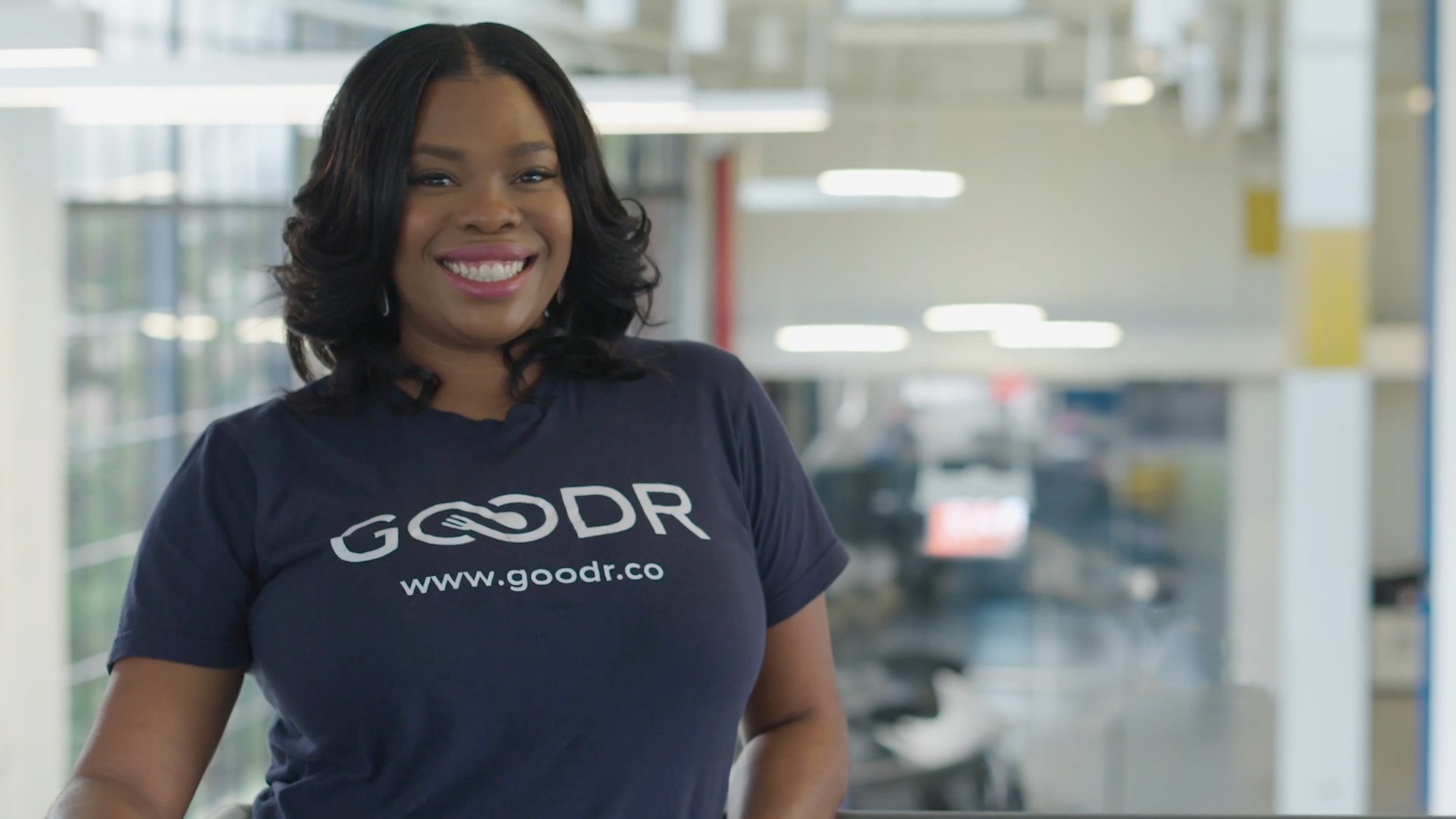Goodr and Jasmine Crowe use technology to reduce other companies’ carbon footprint

Before she founded a profit-for-good corporation that helps other companies strive for zero waste – which has so far diverted more than 2 million pounds of surplus food from landfills (about 1.8 million meals) – Jasmine Crowe used to feed people experiencing homelessness directly from the kitchen of her small one-bedroom apartment in Atlanta, something she called Sunday Soul.
For three and a half years, she cut coupons, price matched and shopped at three to four grocery stores and farmer’s markets, then spent 15-20 hours to make the bi-weekly meal (4-6 entrees, 10-ish side dishes, desserts and bread) for 250-500 people. She would then load up her car and drive the food to senior homes, shelters, parks, under bridges and alleyways.
“A video of one of my pop up restaurants went viral on Facebook and I woke up one day to millions of views, friend requests and I was reading through the comments, and one of the recurring questions people kept asking me was, ‘Who donates the food?’ And the reality was nobody,” she says. “And I started thinking, why aren’t restaurants donating the food? So, I started researching food waste.”
She found that nearly 75 billion pounds of perfectly good food is wasted every year in America – which amounts to about $218 billion a year spent in the U.S. on food that people never eat.
“The idea that hunger is an issue of scarcity and we need to produce more food is false,” says Crowe, who founded Goodr in 2017 as a sustainable food waste management company that leverages technology to solve hunger and food waste. “What I look at hunger being is an issue of logistics, and so Goodr is solving what I call the surplus food supply chain problem.”
Read the rest on Microsoft Stories.
